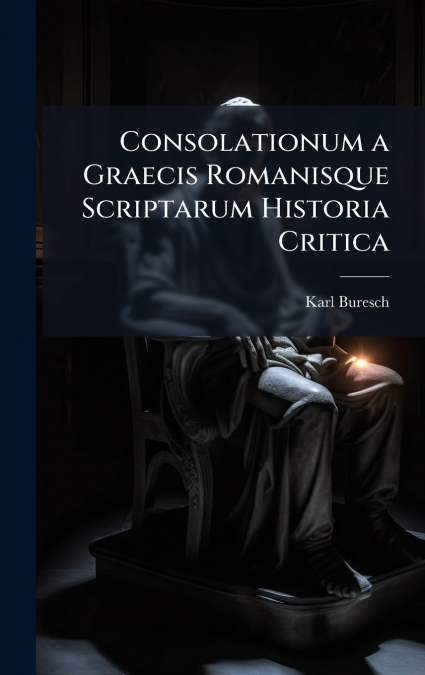
Karl Buresch
Consolationum a Graecis Romanisque Scriptarum Historia Critica, written by Karl Buresch, offers a critical historical analysis of consolation literature from ancient Greece and Rome. This meticulously researched volume delves into the philosophical and historical contexts that shaped these writings, providing valuable insights into the ways ancient thinkers and writers addressed themes of grief, loss, and resilience. Buresch’s work explores the evolution of consolation as a literary and philosophical genre, examining key texts and authors who contributed to its development.The book is an essential resource for scholars and students interested in classical literature, ancient philosophy, and the history of ideas. Its detailed examination of primary sources and insightful analysis make it a significant contribution to our understanding of how ancient societies grappled with the universal human experience of suffering and loss. This historical study is invaluable for researchers and anyone interested in classical antiquity.This work has been selected by scholars as being culturally important, and is part of the knowledge base of civilization as we know it. This work was reproduced from the original artifact, and remains as true to the original work as possible. Therefore, you will see the original copyright references, library stamps (as most of these works have been housed in our most important libraries around the world), and other notations in the work.This work is in the public domain in the United States of America, and possibly other nations. Within the United States, you may freely copy and distribute this work, as no entity (individual or corporate) has a copyright on the body of the work.As a reproduction of a historical artifact, this work may contain missing or blurred pages, poor pictures, errant marks, etc. Scholars believe, and we concur, that this work is important enough to be preserved, reproduced, and made generally available to the public. We appreciate your support of the preservation process, and thank you for being an important part of keeping this knowledge alive and relevant.